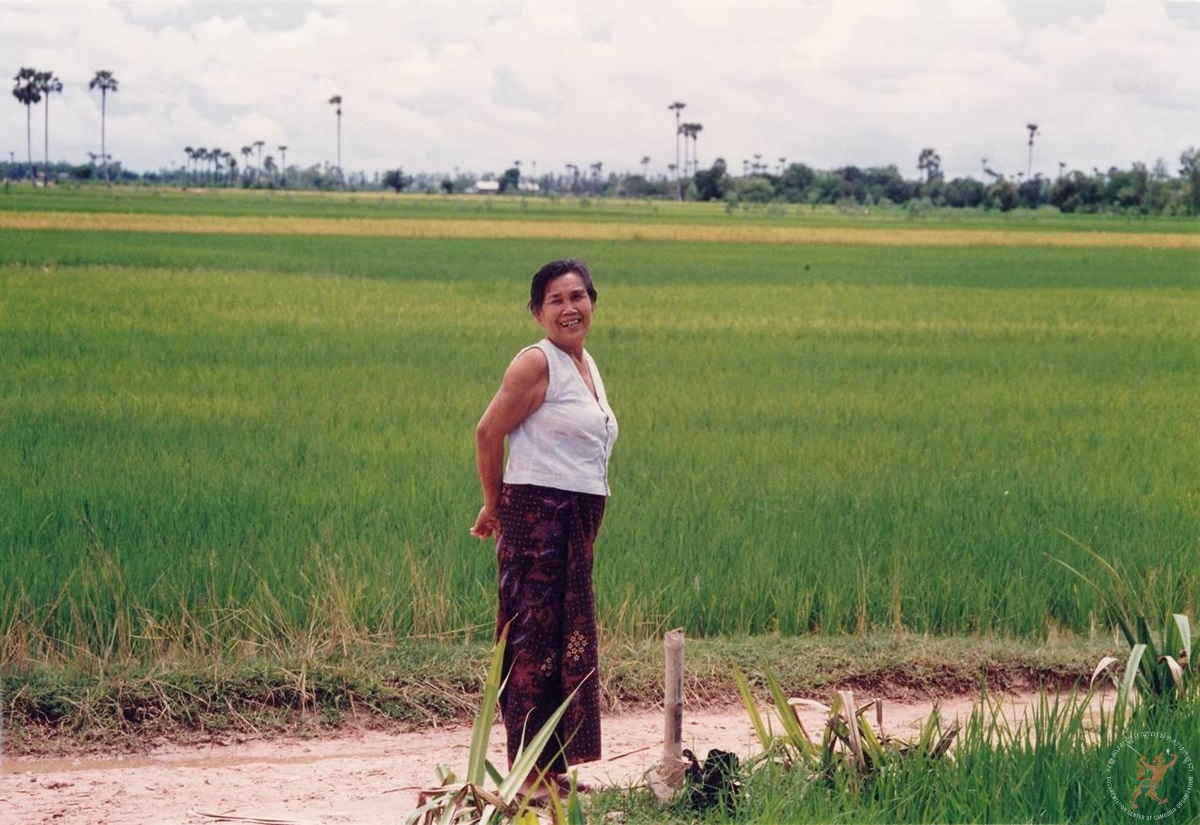MEMORY IN LIFE OF A KHMER ROUGE GENOCIDE SURVIVOR

By Youk Chhang
17 April 2024
Dedicating this article to those who were forced by the Khmer Rouge to leave home on 17 April 1975.
As a genocide survivor of the Khmer Rouge and the executive director of an organization dedicated to helping survivors, I had always believed that I had a firm grasp of the full spectrum of harm inflicted upon Cambodian society by the regime, particularly since I had dedicated my life to helping people in this population. But the recent passing of my mother made me realize that even for people who have spent decades studying atrocity crimes and their effects, there are still lessons to be learned on how trauma and the impact of genocide can echo through life long after the horrors have ended.
During the Khmer Rouge period (1975-1979), innocent people, including even infants and children, were imprisoned, tortured, and murdered. The entire population was subjected to forced labor, brutal conditions, and an unceasing threat of violence, if not destruction. The Khmer Rouge divided wives from their husbands, parents from their children, and families were broken apart. It was exceptionally difficult for parents who had to watch their children suffer or be killed. There is probably no greater curse than for parents to outlive their children, and the Khmer Rouge period marked one long curse in the innocent deaths of so many children, their parents, and their families.
My mother, Keo Nann, was born on 4 March 1928, and she lived this nightmare, watching six children pass away out of the ten children she had—some died before, during, and after the brutal years of war and the Khmer Rouge genocide. I was the youngest child, number 10, and I was just a small boy during the Khmer Rouge period. I did not initially have many survival skills, though I quickly learned how to survive. Like all my siblings, we looked to our mother as a rock of guidance, perseverance, and care. She was my family’s hero, representing a pillar of strength and resilience for my siblings and me. We loved my mother for all that she did for us during the Khmer Rouge period.
On June 20, 2023, I was attending a conference and received a voice message from my sister stating our mother was not well, and my sister did not want to take her to the hospital out of fear of exposing her to COVID-19. She wanted to treat her at home, and out of respect for my sister’s wishes, I did not interfere, though I did suggest we consult with a doctor because of her age. Dr. Demosthenes C. Reyes, who is a trusted medical advisor to DC-Cam stated she was definitely a candidate for hospitalization in the Intensive Care Unit. She had significant difficulty breathing, and her oxygen was dangerously low, and after she fainted in front of my family, it was only then that my sister agreed to take her to the hospital.
In the hospital, my mother and I connected on a level that I had not experienced since I was a little boy. Observing her unsteady respiration, I instructed her on how to meditate to facilitate more efficient breathing, prompting an unexpected smile and laughter that I had not seen in 45 years. We talked for some time about many topics and family history.
But I did not delight in these precious moments with my mother, nor did I indulge her with the warmth, affection, or selflessness that one would expect in these circumstances. I took the occasion to complain to her.
I complained to her about being the last child in our family and how unfair it was that I never received the care that she showed to my siblings. Among other accusations, I asked her, “Why did you abandon me during the evacuation of Phnom Penh?” She understood what I was telling her, and the more I perceived she understood my complaints, the more I complained until she started crying.
I realized I spoke to her in such a way because I was lonely and scared and still needed a mother. She knew how special she was to me and how much pain I would feel in losing her. I asked the heavens for permission for her to live longer. I will never forget this moment. Eventually, she cried herself to sleep.
My mother was equally as much a victim of the Khmer Rouge genocide as was I. She shared the same losses, trauma, and pain, yet none of that mattered to me in these circumstances. In her final days, all I could think about was that she had not given me enough and leaving me brought back by memories of abandonment I felt in the evacuation of Phnom Penh.
I do not think there will ever be a way to describe the full breadth and depth of harm inflicted by the scourge of genocide and atrocity crimes, but I realized a poignant truth in the final days of my mother’s life.
The true impact of these crimes is not confined to a lifetime because the impact is intangible, immeasurable and in many respects eternal. It had been over forty years since the genocidal Khmer Rouge regime, and yet even today, the memories of fear and suffering and the feeling of abandonment during this period came flooding back, impacting the last opportunity my mother and I had to connect with her. Even today, there is still so much to be learned on how families, communities and the Nation processes this horrific past.

